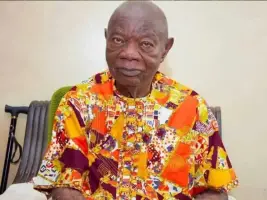The National Publicity Secretary of the All Progressives Congress (APC), Felix Morka, has admitted he has no definite timeline for when President Bola Tinubu's economic policies will begin yielding positive results for Nigerians.
Speaking to journalists at the APC National Secretariat in Abuja on Thursday, Morka responded to questions about the administration's economic reforms amid growing public discontent over living conditions in the country.
"The child is crawling. Now, I don't know what age. I can't say," Morka stated, using a developmental metaphor to describe the progress of government policies. "I think it varies from one child to the other. Some kids are faster than the others. So they crawl quicker than some. But irrespective of the time they crawl, they crawl."
His comments come at a time when many Nigerians are struggling with unemployment, poverty, insecurity, and a high cost of living—challenges that have intensified public scrutiny of the administration's economic approach.
Morka's statements appear to contradict recent assertions by top APC officials. Just last week, Senate President Godswill Akpabio, House Speaker Tajudeen Abbas, APC National Chairman Abdullahi Ganduje, and Imo State Governor Hope Uzodinma claimed during an APC national summit that Tinubu's policies were already producing positive outcomes.
Defending Controversial Reforms
On the contentious issue of fuel subsidy removal, Morka defended President Tinubu's decision, claiming previous administrations had merely "postponed the doomsday." According to the APC spokesman, the subsidy removal was implemented "in the overall interest of the nation" despite its immediate economic impact on citizens.
When questioned about insecurity, Morka characterized it as "a global phenomenon" and a challenge that has faced Nigeria for the past two decades, seemingly downplaying its current severity under the present administration.
The APC spokesman also refuted allegations that the party has begun campaigning for Tinubu's re-election, drawing a distinction by stating that "endorsement of the President is not a campaign."
These comments come as the administration faces increasing criticism from opposition parties and civil society groups regarding its economic management and policy direction, with many Nigerians expressing frustration over deteriorating living standards despite government promises of improvement.













